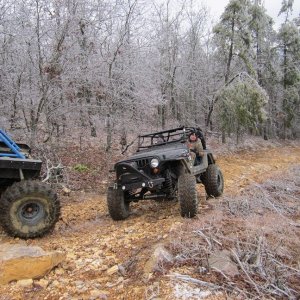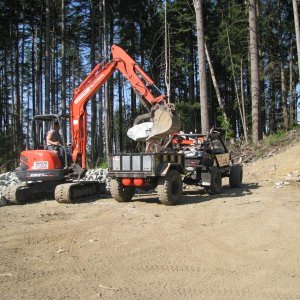The Law RCW 79.10.120
First, before I give you the RCW or "law" you must understand that the DNR is a trust manager, that is, it manages the resources of another, in this case it's the property mainly set aside at state hood for support of state institutions - schools, prisons, etc., and properties that came to the state through forest land tax forclosures in the early 20's and 30's. Under trust law, the trust manager must provide an undivided loyalty to the trust owner. The DNR must manage the parcels under it's care with the sole focus on benefiting those institutions. The public at large is not a part of the benefiting equation except through those public institutions; recreation is not a benefiting institution.
Now, to the question at hand, there is a law on the books that's commonly referred to as the Multiple Use Act, RCW 79.10.120. It gives the DNR the cover it needs to allow recreation on state TRUST land. You wanted the law, here it is:
RCW 79.10.120
Multiple uses compatible with financial obligations of trust management -- Other uses permitted, when.
Multiple uses additional to and compatible with those basic activities necessary to fulfill the financial obligations of trust management may include but are not limited to:
(1) Recreational areas;
(2) Recreational trails for both vehicular and nonvehicular uses;
(3) Special educational or scientific studies;
(4) Experimental programs by the various public agencies;
(5) Special events;
(6) Hunting and fishing and other sports activities;
(7) Nonconsumptive wildlife activities as defined by the board of natural resources;
(8) Maintenance of scenic areas;
(9) Maintenance of historical sites;
(10) Municipal or other public watershed protection;
(11) Greenbelt areas;
(12) Public rights-of-way;
(13) Other uses or activities by public agencies;
If such additional uses are not compatible with the financial obligations in the management of trust land they may be permitted only if there is compensation from such uses satisfying the financial obligations.
[2003 c 182
I really appreciate your effort here BTW boardbysled ... I also know you're not alone.
Please if you don't mind, show where in "law" this focus on logging is prioritized above recreation.
I'm trying to understand if this is a "person" (elected or not) making this a priority, or if it's something that "person" is deciding to do (elected or not).
First, before I give you the RCW or "law" you must understand that the DNR is a trust manager, that is, it manages the resources of another, in this case it's the property mainly set aside at state hood for support of state institutions - schools, prisons, etc., and properties that came to the state through forest land tax forclosures in the early 20's and 30's. Under trust law, the trust manager must provide an undivided loyalty to the trust owner. The DNR must manage the parcels under it's care with the sole focus on benefiting those institutions. The public at large is not a part of the benefiting equation except through those public institutions; recreation is not a benefiting institution.
Now, to the question at hand, there is a law on the books that's commonly referred to as the Multiple Use Act, RCW 79.10.120. It gives the DNR the cover it needs to allow recreation on state TRUST land. You wanted the law, here it is:
RCW 79.10.120
Multiple uses compatible with financial obligations of trust management -- Other uses permitted, when.
Multiple uses additional to and compatible with those basic activities necessary to fulfill the financial obligations of trust management may include but are not limited to:
(1) Recreational areas;
(2) Recreational trails for both vehicular and nonvehicular uses;
(3) Special educational or scientific studies;
(4) Experimental programs by the various public agencies;
(5) Special events;
(6) Hunting and fishing and other sports activities;
(7) Nonconsumptive wildlife activities as defined by the board of natural resources;
(8) Maintenance of scenic areas;
(9) Maintenance of historical sites;
(10) Municipal or other public watershed protection;
(11) Greenbelt areas;
(12) Public rights-of-way;
(13) Other uses or activities by public agencies;
If such additional uses are not compatible with the financial obligations in the management of trust land they may be permitted only if there is compensation from such uses satisfying the financial obligations.
[2003 c 182









